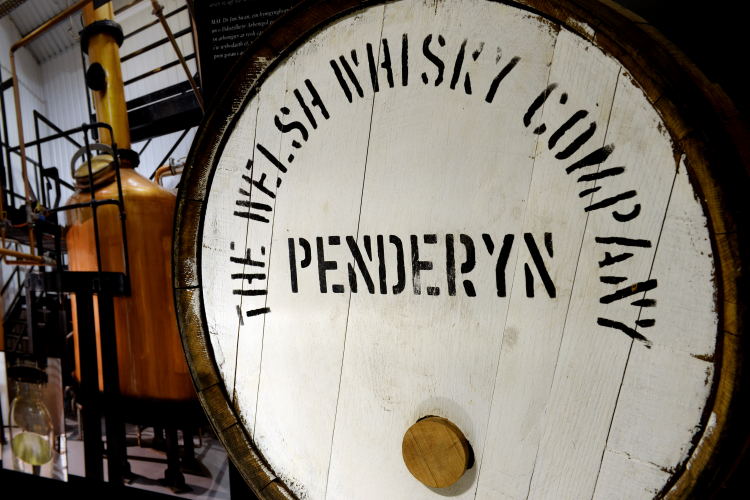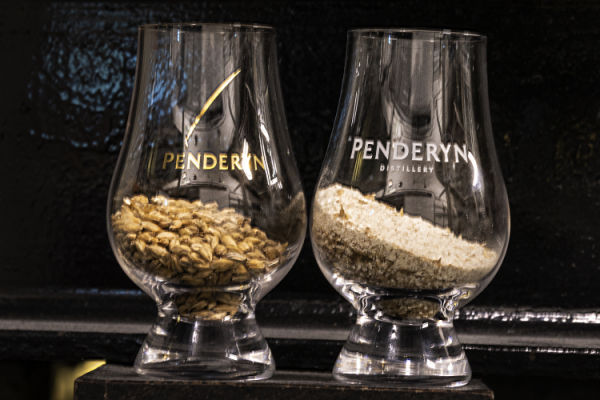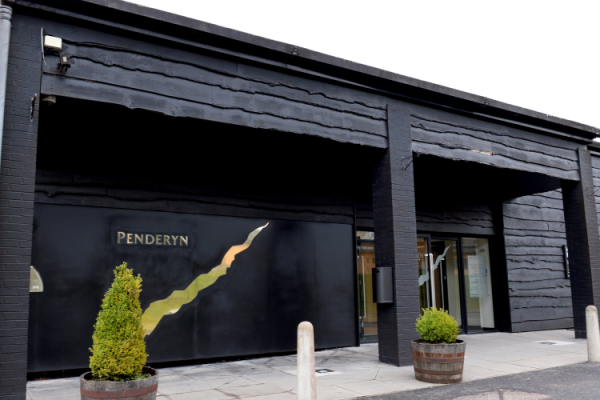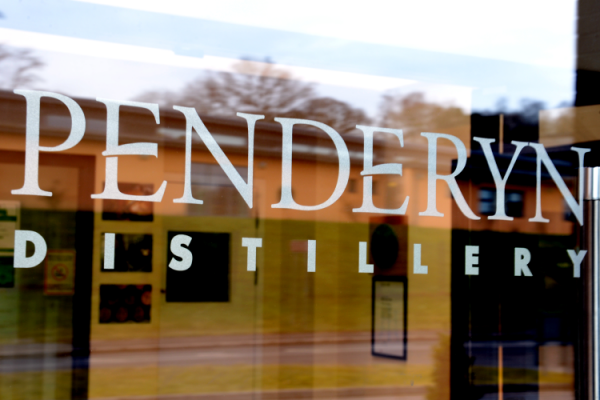How Penderyn is putting Welsh whisky on the map: 'We want to be seen as the drink of Wales'

Penderyn was founded 22 years ago when a group of friends got together at a pub in Hirwaun in the Welsh valleys and agreed to set up the first whisky distillery in Wales in over a century.
Unlike its Celtic neighbours, Wales is not synonymous with whisky production – but the move was nevertheless built on heritage and tradition, Penderyn CEO Stephen Davies explained. “There’d been whisky in Wales for over 100 years. There was a desire to bring that tradition back,” he told FoodNavigator at the group’s distillery located in the picturesque Brecon Beacons.
The economy of the Welsh Valleys had been decimated by the collapse of the coal mining industry in Britain. Recognising the need to explore alternative pathways to economic development, Penderyn's founders hoped returning whisky production to Wales was one such opportunity.
As well as providing direct jobs (currently around 100 people but set to increase by 20 more) Penderyn’s business model leverages food tourism to help bring people and money into Wales, acting as a ‘Welsh ambassador’. The Brecon Beacons distillery attracted 40,000 visitors annually pre-pandemic. “Most industry in the Valleys was long gone. We had to do something different. We wanted to create a brand for Wales,” Davies reflected.
This ambition was perhaps easier said than done. “When we started distilling, the idea the idea of a Welsh whisky distillery was a little ridiculous. Over a really long time, we’ve been able to build credibility,” Davies continued.
The company was a pioneer in the world whisky category and has been able to win over critics, building its reputation by securing prestigious awards for taste and quality. Davies believes ‘there’s a lot of discovery in the brand’ which benefits from a ‘Celtic allure’. Quality is at the heart of Penderyn’s proposition. “Don’t buy it because it is Welsh, buy it because it is a world class spirit.”
The company has been instrumental in putting Welsh whisky on the map. And now it is working to secure protected status. “We have applied for a PDO [Protected Designation of Origin]. For single malt Welsh whisky to have PDO status is quite significant.”
A unique production process
While most Scottish and Irish distilleries use conventional two- or three-pot ‘lantern’ still systems, Penderyn uses quite a different technology: what it calls the 'Penderyn Faraday still'. This is a single copper-pot still designed by Dr David Faraday while he worked at the University of Sussex.
Charged with Penderyn’s own malted barley wash, as the liquid is heated steam rises into a copper column above the still. This has a series of perforated plates onto which the vapour condenses before returning to the still. Each time this happens the spirit is left ‘smoother, softer and more refined’. Eventually the spirit is drawn from the seventh plate on the second column and piped into a glass spirit safe. The result is an alcohol with 92% abv – an ‘industry high’ according to Davies – meaning that the end product is ‘not as heavy or oily’ as Scottish or Irish whiskies.
The company has also invested in new lantern stills like those used by most other distilleries. These produce an alcohol with an average 74% abv that is ‘slightly heavier and oilier’ but gives the group’s mixologists the opportunity to experiment with new whiskies by mixing Faraday spirit.
Penderyn’s whisky is then finished in Madera wine casks and Bourbon barrels. The end spirit is described as ‘light and fruity’ with ‘creamy toffee notes’. The Penderyn team regularly receive feedback that it is a ‘sunshine whisky’ light enough to be enjoyed before a meal. “There are a whole range of ways we add quality in our processes. We are a craft business working in small batches. We’re not making Coca-Cola. It is hugely creative,” Davies tells us.

Fuelling future growth
Penderyn, which is currently present in almost 50 countries, is investing around £80m to double its production capacity. The company makes 400,000 litres of pure alcohol – 1.2m bottles of whisky a year – in the Brecon Beacons. Two further production facilities are coming into play, one in North Wales with a capacity of 100,000 litres and one in Swansea that is set to open in March next year with a capacity of 400,000 litres.
Increased capacity will support future growth but, Davies explained, because it is a product that takes a minimum of three years to mature, a jump in production won't immediately flow through to Penderyn’s top line. “Because it is a mature product you can’t grow too quickly,” the whisky expert explained.
Over the last ten years the company has grown sales volumes by 10-20% - ‘as fast as our available stocks will allow us’ – to reach total revenue of around £20m. As one of the top ten single malts on sale in Britain, domestic UK sales currently account for 70% of this total. Looking to the future, the company sees both its domestic and international businesses growing as fast as they can be supplied. Davies does however expect exports to become a more significant part of the business model. “We are looking for growth in both the UK and international markets. We’ll move to 40% exports in two years,” he predicted.
Internationally, the chief executive sees strong opportunities to meet growing demand from large economies in Asia. The company’s top export markets are currently France, Germany, the USA and China. “France and the USA are very sophisticated markets for whisky but they are great places to be… There are places like Taiwan and Japan that are good second tier markets.” Elsewhere, Hong Kong and Canada are attractive prospects.
As a brand, Penderyn also is well-placed to tap into the buoyant travel retail market. “Travel retail is a fantastic international shop window. It helps to build awareness and the reputation of the brand. We want to be seen as the drink of Wales,” Davies said.
What of Brexit? For a company exporting to markets in the EU, has related disruption to trade posed a significant hurdle? “It has been very challenging because of the uncertainty. It made orders very difficult to predict. It has increased the amount of friction incredibly. It is harder to send samples, get product to market, adhere to labelling requirements,” Davies responded. However, he remains sanguine about the company’s ability to adapt: “To be honest, we already had these issues with the rest of the world.”
Penderyn, like other F&B businesses, also had to grapple with issues surrounding COVID but, coming out the pandemic, Davies believes the group is in a stronger position overall. “COVID was an incredibly worrying time. But because we are well distributed in UK supermarkets… we actually did quite well. Our online presence also increased. Some of the online has settled now but retail has remained very strong.”
Troubled waters ahead? Cost inflation and economic gloom
For many in the UK food sector, it may feel as though the industry has lurched from one crisis to the next. The current climate of intense cost inflation is something that the industry as a whole is now forced to respond to – and Penderyn is no exception.
“There are challenges in all directions. Some cost inflation will hit us straight away,” Davies revealed, pointing to the major impact energy and glass costs are having. The availability of glass is down because of ‘unprecedented demand’ and ‘we are staring at some pretty hefty energy bills’. Barley has also increased in price from £400 a tonne to £700 a tonne. But much of the margin impact will be felt in years to come, as whisky that is made today matures, comes out of Penderyn’s warehouses and goes into distribution
“If this lasts a year, it is one problem. If it lasts 5-7 years, it is a whole different problem,” Davies suggested.
There is also some trepidation for a premium brand in a down economy, particularly ‘if the country ends up in recession’. Pricing discussions with retail customers are a potential minefield as Penderyn works to maintain its competitiveness in the premium spirits category. “A lot of customers don’t want to pass prices on to consumers. I don’t want to see our products looking too expensive in the marketplace,” Davies said. “If you look at the market, big brands have been absorbing increased costs… It is harder for us to hold out position because we don’t have scale. Our negotiating position is more difficult.”
Nevertheless, as the significant investment in capacity demonstrates, Penderyn remains bullish about the long-term prospects for Welsh whisky. “We are promoting Wales around the world,” Davies enthused.










